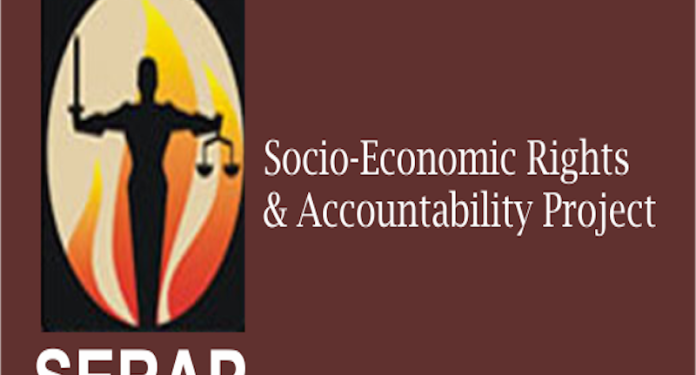The Socio-Economic Rights and Accountability Project (SERAP) wants the Federal Government to direct the Attorney-General of the Federation and other agencies to investigate corruption allegations in the use of the monthly federal allocations to the 774 local governments in the country through the 36 state governors and the Federal Capital Territory.
In an open letter to President Muhammadu Buhari, SERAP also sought investigations into “the alleged complicity of state governors in corruption cases involving local government allocations between 1999 and 2019, and if there is relevant and sufficient admissible evidence, for suspected perpetrators to be prosecuted by anti-corruption agencies and any stolen public funds recovered and used to provide public goods and services.”
SERAP’s letter followed the reported arrest last week by the Economic and Financial Crimes Commission (EFCC) of 16 local government chairmen in Kwara state, who were suspended by Governor AbdulRahman AbdulRazaq. They allegedly misappropriated N4 billion loan meant for paying teachers’ salaries and local government pensioners.
In the letter dated 1 November 2019 and signed by SERAP deputy director Kolawole Oluwadare, the organization said: “Investigating state governors and local government chairmen over allegations of corruption and abuse of power in the use of federal allocations meant to provide public goods and services would best serve the general public interests and welfare.”
SERAP said: “We request that you take the recommended action within 14 days of the receipt and/or publication of this letter, failing which SERAP will institute legal proceedings to compel your government to act in the public interest.
“Our request is based on the 1999 Constitution of Nigeria (as amended), the country’s anti-corruption legislation and international obligations, particularly the UN Convention against Corruption. Section 7(6)(a) of the constitution anticipates allocation of public revenue to the 774 local governments in the country. The proposed investigations and prosecution do not offend the constitutional principles of federation in any way, shape or form.”
“Your government is empowered to use the provisions of the constitution, anti-corruption legislation and international standards to check cases of corruption and abuse of power nationwide, including by state and local governments. This position is entirely consistent with the doctrine of covering the field, as it vindicates the true practice of federalism,” it said.
“SERAP therefore believes that anyone involved in alleged corrupt practices and abuse of power including at the state and local government levels should be promptly, thoroughly and effectively investigated and prosecuted if there is relevant and admissible evidence of corruption, and stolen public funds recovered both to provide public goods and services to ordinary citizens and to serve as deterrent.”
“State governors do not enjoy immunity from investigation. Any criminal allegation against any sitting governor can and should be investigated pending the time the governor leaves office and loses immunity. The findings of such investigation can also be the basis for initiating impeachment proceedings against the governors.”
“SERAP hopes that you will exercise your constitutional powers to promote transparency and accountability and stop corruption in the use of federal allocations to state and local governments across the country.”
“The constitutional authority by federal authorities and agencies to fight corruption and ensure the peace, order and good government extend to any part of the country, as contained in the Exclusive Legislative List in Part 1 of the Second Schedule to the Nigerian constitution.”
“The EFCC also reportedly probed how N11 million was allegedly taken by each of 33 former local government caretaker chairmen, which was spent to secure Oyo State against incursion by Boko Haram insurgents during the 2015 general elections. The money was allegedly disbursed from the Local Government Stabilization Account to each of the 33 local government areas of the state.”

